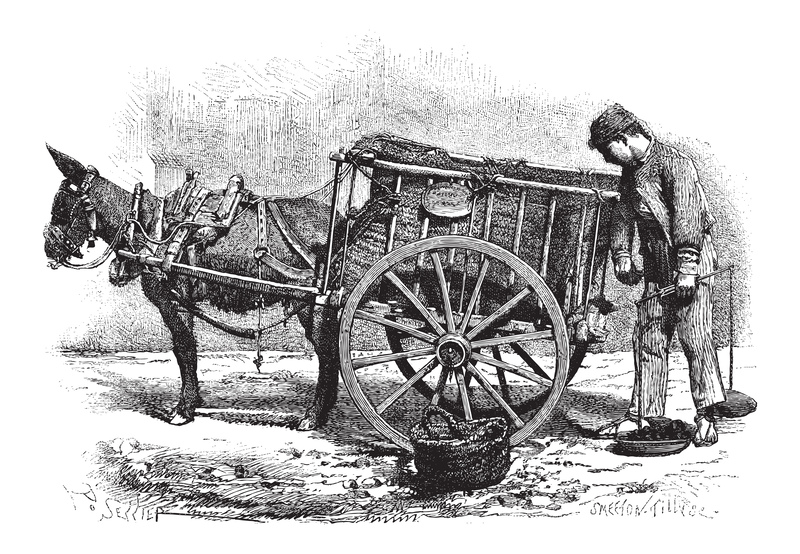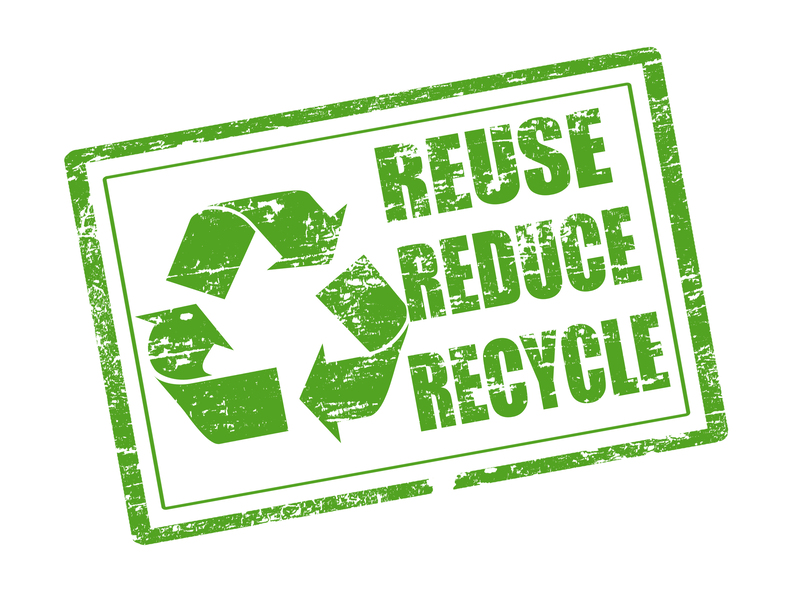How to Cut Costs When Handling Bulky Waste Items: A Complete Guide
Disposing of bulky waste items--such as furniture, old appliances, mattresses, and construction debris--can be a daunting and expensive task for both homeowners and businesses. Many people quickly realize that regular curbside pickup services have limits, and hiring a professional removal company can cost a small fortune. However, by implementing some clever strategies, you can significantly cut costs when handling bulky waste items without compromising on convenience, safety, or environmental responsibility.
In this comprehensive article, we will explore a variety of actionable tips and cost-saving options for efficiently disposing of large waste items. By the end, you'll be equipped with valuable knowledge, innovative ideas, and practical steps to manage bulky waste item disposal while saving money.

Understanding Bulky Waste: What Qualifies as Bulky Items?
Before exploring cost-saving measures, it's essential to know what constitutes a bulky waste item. Municipalities often define bulky items as those too large or heavy for regular curbside trash bins or bags, usually weighing over 20-30 kilograms or exceeding a certain size.
- Old furniture (sofas, tables, chairs, wardrobes)
- Large appliances (fridges, washing machines, ovens)
- Mattresses and bed frames
- Carpet rolls
- Construction and renovation debris
- Yard waste (tree branches, stumps, fencing)
These items can't be tossed with your weekly waste, making it crucial to find cost-effective solutions for their disposal.
Smart Strategies to Cut Costs When Managing Bulky Waste Items
1. Take Advantage of Free Municipal Collection Programs
Many cities and towns offer free bulky waste collection days or scheduled pick-ups throughout the year. These programs allow residents to dispose of specific types of large waste items at no extra charge or for a nominal fee. To utilize this money-saving option:
- Check your local waste management website for schedules and eligibility requirements.
- Book appointments or register your items in advance to secure your spot.
- Follow preparation guidelines (e.g., separating electronics, wrapping mattresses, or removing doors from fridges).
Tip: *Set calendar reminders* for these collection dates and coordinate with neighbors to make the most of each pickup.
2. Break Down Bulky Items Into Smaller Pieces
One effective way to minimize bulky waste removal costs is to disassemble large items. Many disposal services charge by volume or size, so reducing the footprint of your waste can lead to substantial savings.
- Use basic tools to dismantle furniture (remove sofa legs, separate bed frames, break down tables).
- Strip appliances of removable metal or plastic parts for easier handling and possibly recycling.
- Roll or cut up carpets/waste into manageable bundles.
By making waste more compact, you might qualify for regular curbside pickup, or at least lower transport and landfill fees.
3. Repurpose or Sell Items for Extra Cash
Many so-called "bulky waste items" still have life left in them. Upcycling or selling old furniture and appliances can eliminate disposal costs and even put money back in your pocket.
- List items on platforms like Craigslist, Facebook Marketplace, or local Buy Nothing groups.
- Host a garage sale for all unwanted large items at once.
- Repurpose materials, e.g., turning an old dresser into a storage bench or using wood from a broken bed frame for DIY projects.
What doesn't sell can be offered for free pickup--many people are happy to haul away furniture or appliances for parts or refurbishment.
4. Donate Usable Items to Charities or Nonprofits
Donating is a socially responsible and cost-saving way to dispose of bulky items. Many charitable organizations accept large household goods, sometimes offering free pickup:
- Furniture banks
- Goodwill or Salvation Army
- Local shelters, churches, or schools
- Community reuse centers
Ensure items are in good, usable condition. Donations not only reduce landfill waste, but may also qualify you for a tax deduction.
5. Rent a Dumpster with Friends or Neighbors
If you're undertaking a big cleanout, moving, or renovating, dumpster rental is often the most convenient option. However, renting a dumpster can be pricey.
- Team up with neighbors or nearby friends who also have bulky waste to share the cost.
- Choose the right size dumpster--avoid paying for unused space.
- Compare multiple providers for the best rates and service.
By pooling resources, you can enjoy the convenience of on-site disposal for a fraction of the typical price.
6. Consider a 'Man and Van' Service Over Full-Service Removal
Hiring a full-service junk removal company is easy but can be costly. Instead, search for reputable local "man and van" operators who focus on transportation rather than labor-intensive removal.
- Handle the loading yourself to reduce labor costs.
- Book the smallest vehicle necessary for the job.
- Ask about rates for multiple pickups in the same neighborhood.
This personalized approach often comes at lower rates than national chains, especially for straightforward bulky waste transport.
7. Utilize Retailer Take-Back Programs for Appliances and Mattresses
Many large retailers and manufacturers offer free or low-cost removal of old items when delivering new purchases. This is particularly common for mattresses, refrigerators, and washing machines.
- Ask about disposal options before making your purchase--sometimes the cost is included.
- Ensure items meet pickup requirements (emptied, unplugged, unsoiled).
- Confirm whether the old item will be recycled rather than landfilled.
Taking advantage of these programs eliminates separate removal costs and reduces environmental impact.
8. Seek Out Bulk Waste Drop-Off Days or Disposal Centers
Your community may operate designated bulky waste drop-off sites or periodic collection events.
- Research accepted items, volume limits, and fees (if any).
- Organize transport with a borrowed truck or rent a trailer for a half-day.
- Combine loads with friends, neighbors, or relatives to split fuel and rental costs.
This is often more affordable than hiring a removal service and convenient for those with multiple or oversized items.
9. Prioritize Recycling Large Waste Items
Many bulky waste items can be recycled, reducing landfill fees and, in some cases, generating a small profit.
- Check with local scrap metal yards about pickup or drop-off for old appliances, bikes, or metal furniture.
- Participate in electronics recycling programs for TVs, computers, and other e-waste.
- Drop mattresses at certified recycling centers--some offer free disposal if materials are reusable.
Tip: Always call ahead to confirm accepted items and any associated fees or rebates.
10. DIY Hauling: Borrow, Rent, or Ask for Help
Do-it-yourself hauling delivers the biggest savings if you're physically able and have access to a truck or trailer. Try these budget-friendly solutions:
- Borrow a vehicle from a friend, family member, or neighbor.
- Rent a pickup, van, or trailer for just a few hours rather than an entire day.
- Enlist helping hands for safe lifting, loading, and unloading.
By handling the transport yourself, you avoid labor charges and only pay the disposal center's direct fees.
Bulky Waste Cost-Cutting Checklist
- Plan bulk disposal around existing free events or collection days.
- Break down items to save on volume-based fees.
- Sell, give away, or repurpose first--dispose of only what's truly unwanted.
- Share costs with others: neighbors, friends, or community groups.
- Do as much of the labor and hauling yourself as safe and practical.

Environmental and Legal Considerations
Why Proper Bulky Waste Disposal Matters
Improper dumping of large items is illegal and can result in hefty fines. Illegal disposal pollutes ecosystems, clogs waterways, and harms wildlife. Additionally, many bulky items--such as old appliances and electronics--contain hazardous substances that must be handled with care.
Choosing Eco-Friendly Options
When looking for affordable bulky item removal, always prioritize eco-friendly choices:
- Choose recycling and donations over landfill whenever possible.
- Request a disposal manifest from removal services to ensure legal, responsible handling.
- Keep hazardous materials separate and check for designated safe disposal locations.
Know Your Local Regulations
Bulky waste rules vary widely from one municipality to another. Ignorance of local law can lead to surprise charges or denied pickup. Before scheduling removal, always check:
- Item size and weight restrictions
- Banned items (e.g., electronics, tires, hazardous chemicals)
- Documentation or proof of residency requirements
Conclusion: Save Money and the Environment When Disposing of Bulky Waste Items
The next time you're faced with the challenge of getting rid of oversized household waste, remember: responsible, cost-effective bulky item disposal is possible with some creativity, research, and advance planning. By combining strategies--such as DIY hauling, free collection events, selling or donating usable items, and breaking down large waste--you can significantly reduce your bulky waste removal costs while doing your part for the planet.
For the best results, start by researching your local options, contacting your municipality, and reaching out to neighbors or friends for cost-sharing and ideas. Every step you take to minimize disposal expense not only helps your bank account but also contributes to cleaner, greener communities.
Ready to save on bulky waste disposal? Put these tips to work and enjoy a clutter-free home or business--without breaking the bank.
